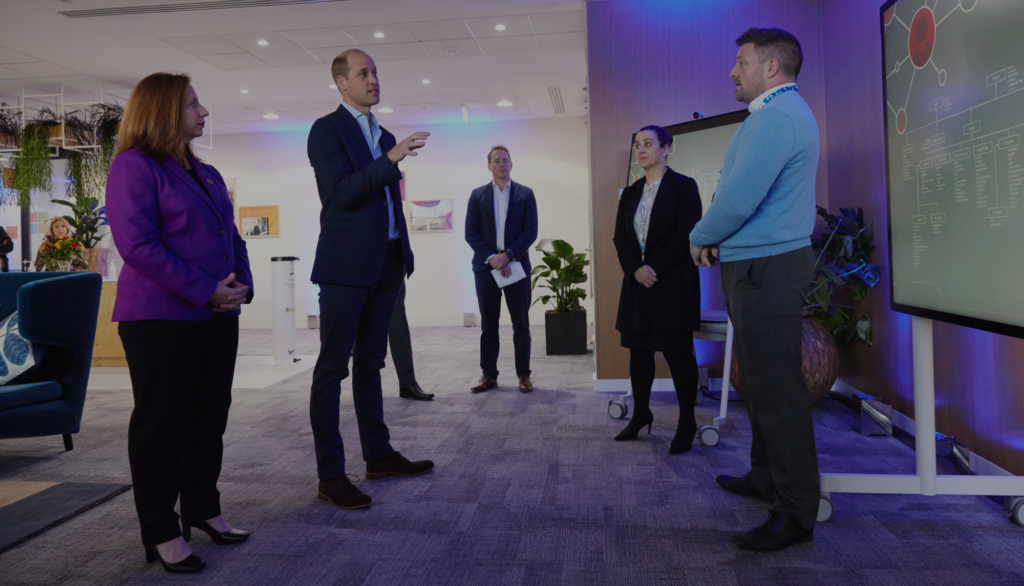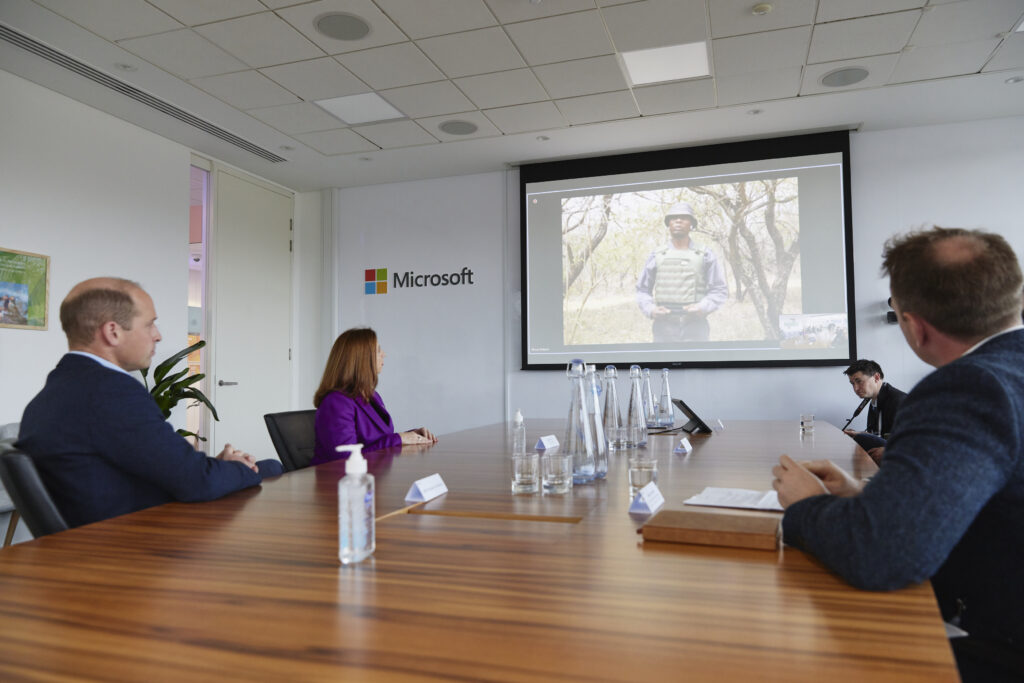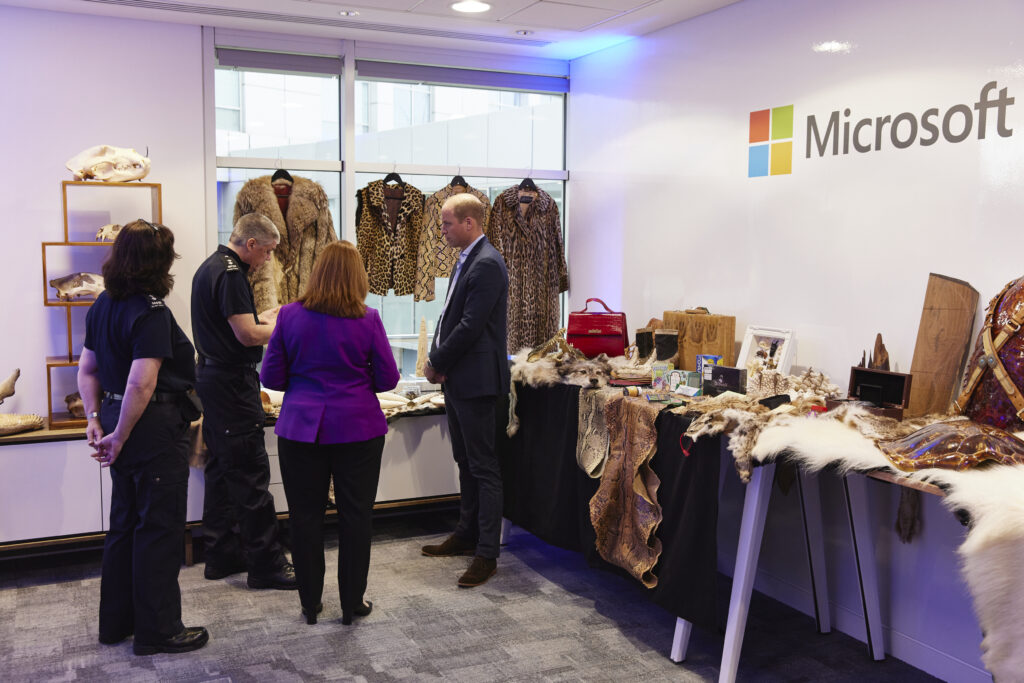
The Duke of Cambridge finds out how artificial intelligence scanning technology can help in the fight against the Illegal Wildlife Trade
The Duke of Cambridge, founder of The Royal Foundation’s United for Wildlife, visited Microsoft HQ to learn how a new state of the art AI scanning technology can increase the detection of illegal wildlife products being trafficked through international airports, and help to disrupt this criminal trade. It follows a recent trial at London Heathrow, where Microsoft’s AI research project, SEEKER, proved its ability to detect illegal wildlife items concealed in baggage and cargo.
The Duke heard about the potential of this technology as part of his work with The Royal Foundation’s United for Wildlife, whose partners helped the project in development. The illegal wildlife trade is among the five most lucrative global crimes and is often run by highly organised criminal networks. United for Wildlife aims to make it impossible for traffickers to transport, finance or profit from illegal wildlife products. By working collaboratively with the transport and finance sectors, building key partnerships with NGOs, and sharing information and best practices across the sectors, and across borders, United for Wildlife is disrupting this criminal network globally.
During the visit, The Duke followed a poaching case from end to end to show how United for Wildlife partners are helping to disrupt this criminal network at each stage. He first heard from Rangers at the Southern Africa Wildlife College about the latest situation on the ground there, where nearly 400 rhinos are poached each year. Then UK Border Force officials explained how criminals aim to exploit the transport network to move their product around the globe and the detection and data collection challenges facing enforcement teams and how SEEKER can help to solve some of these.



SEEKER has a proven successful detection rate of over 70% on ivory products, but importantly it can be trained on any species and integrated into current airport screening and scanning infrastructure. SEEKER can build intelligence for global enforcement teams to better see what is being trafficked, where it has come from and where it is going. Reporting of illegal wildlife seizure cases has, to date, happened without robust data. With a better understanding of criminal tactics and illegal trade patterns, built on the kind of data provided by SEEKER, private and public sector organisations and enforcement agencies can take more informed action.
His Royal Highness then heard from United for Wildlife Financial Taskforce partners and the South African Anti-Money Laundering Integrated Task Force how seizures at airports are just the start of a complex financial investigation. Experts can follow the money trail to identify the criminals at the top of the pyramid and prosecute under anti-money laundering legislation which often has more severe penalties that wildlife crime regulation.
United for Wildlife was founded by Prince William and The Royal Foundation in 2014 with the aim to leave our planet in a stronger position for the next generation by protecting endangered species and their habitats from the Illegal Wildlife Trade. Since the formation of the Finance and Transport Taskforces, they have grown from 12 private sector companies to over 170, representing large proportions of the global shipping, airline, and financial industries. The Taskforces have trained 85,000 employees, supported over 288 law investigations, contributed to 124 trafficker arrests.
